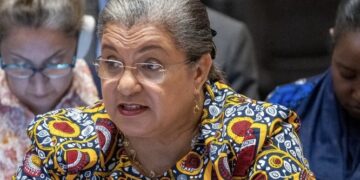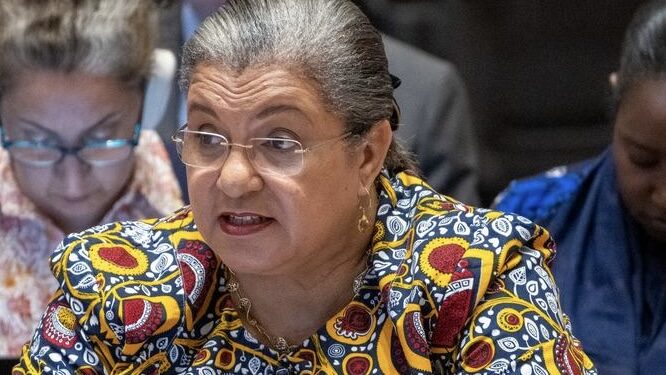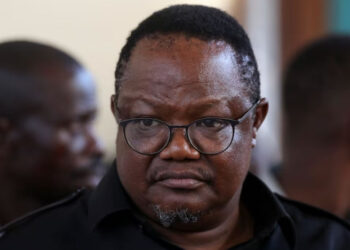By Ebi Kesiena
Nearly 15 years after the fall of long-time ruler Muammar Gaddafi, Libya remains caught in a cycle of political fragmentation, economic uncertainty, and persistent insecurity, according to the United Nations’ top envoy to the country.
Speaking before the UN Security Council, Hanna Tetteh, Special Representative of the UN Secretary-General for Libya, painted a sobering picture of a nation still struggling with the consequences of a fractured political landscape and growing economic instability.
“Every day, ordinary Libyans face recurring crises, whether economic, security, or political,” Tetteh told ambassadors, noting that rival governments and competing interests have left millions of citizens in a state of prolonged limbo.
Since 2014, Libya has been divided between two main authorities: the internationally recognised Government of National Unity (GNU) in Tripoli, and the eastern-based Government of National Stability (GNS), headquartered in Benghazi. Despite efforts at reconciliation, both administrations continue to operate in parallel, with little progress toward genuine unification.
Tetteh acknowledged that most Libyan leaders agree on the need for an inclusive political solution, one that brings an end to unilateral decision-making, reunifies state institutions, and restores a sense of national stability. However, she stressed that significant differences remain over how this can be achieved.
“There is agreement on the need for elections,” she said, “but disagreement over whether a constitutional framework must be established before going to the polls.”
Some Libyan factions believe that forming a new unified government will break the political deadlock, while others fear such a move could further entrench the country’s transitional state. According to Tetteh, real political will and compromise are essential to developing a credible roadmap that includes elections as part of a broader framework aimed at rebuilding state institutions and trust in governance.
At the heart of Libya’s prolonged instability lies its vast oil wealth. Tetteh warned that the ongoing struggle to control the country’s natural resources is fuelling both the economic and political divisions, with elite groups benefiting disproportionately from state funds while average citizens struggle to get by.
She added that the lack of agreement on a national budget, along with excessive and unaccountable spending, poses a serious risk of economic collapse if not urgently addressed despite Libya having enough resources to provide adequately for the population.
Tetteh also expressed grave concern over the treatment of migrants, refugees, and humanitarian workers in Libya. Discrimination, xenophobic rhetoric, and systemic abuse have made these groups especially vulnerable. Women, in particular, face alarming levels of gender-based violence and have limited access to justice or protective services.
Despite the grim outlook, Tetteh emphasised that Libya still holds the potential to chart a new course, provided that its leaders can move past entrenched rivalries and commit to inclusive dialogue and meaningful reform.
“Libya’s resources, if managed equitably and transparently, could provide a strong foundation for peace, stability, and prosperity, but that vision requires unity, political compromise, and respect for human rights at all levels of governance,” she said.

































